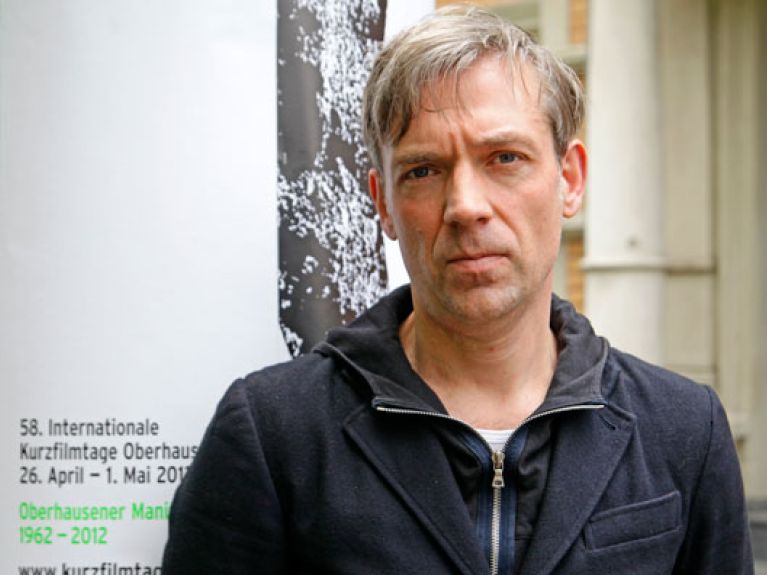Reflecting the new relationships
German short film in an era of globalization – an interview with Lars Henrik Gass, director of the International Short Film Festival Oberhausen

What constitutes a short film in 2015?
What is striking is that conventional genre classifications no longer apply; indeed in many cases it is not even possible to tell whether a film is a documentary or a work of fiction. Another relatively new development is that people are increasingly coming to Germany from abroad to make films here. First and foremost, this has to do with the way Berlin has evolved. Nowadays, a third of the filmmakers taking part in the German competition at the Oberhausen Short Film Festival do not speak German. This is something I regard as very productive, as German film can profit a great deal from such international interest.
Do these filmmakers come from certain specific regions?
No, they come from all over the world. Unlike in the past, they tend not to be students from German film schools. In many cases these filmmakers have already graduated and have chosen to live in Germany. Distance – especially on a European scale – is no longer regarded as an obstacle.
How is this changing film?
It is even affecting something as fundamental as the language of the films, with artists now producing their works in English as if it were the most natural thing in the world. Then there is the fact that actors from abroad naturally also appear in these films, which reflects the new, globalised relationships. What is more, multicultural elements are “imported”, giving rise to highly idiosyncratic, hybrid film forms. Sometimes, this can make it hard for us festival organizers to decide for sure whether a work should be entered in the German or international competition. It becomes clear that one has to question oneself. To what extent is a “German competition” in fact still representative of German cinema?
How are the films influenced by the new media?
Increasingly, the images used are designed for smaller media rather than for collective viewing in a cinema setting. After all, we all use mobile devices to watch films wherever we choose instead of only on television as in the past. What we are seeing here is a kind of privatisation of the way we experience films.
Nonetheless, more and more festivals are being established in Germany. What is their significance?
It is indeed amazing that there are fewer and fewer commercial opportunities for films, yet the number of films is rising. These films need to be shown somewhere. In other words, the boom in festivals also expresses a certain need: of filmmakers to present their productions but equally of audiences which are not satisfied with what is on offer on television, at the cinema or on the Internet. There is demand in society for such places, though they do not necessarily have to be cinemas. These days, festivals are also held in museums and other venues. We are experiencing a process in which people who make films and those wishing to watch films are being brought together in new ways.
Helen Sibum

